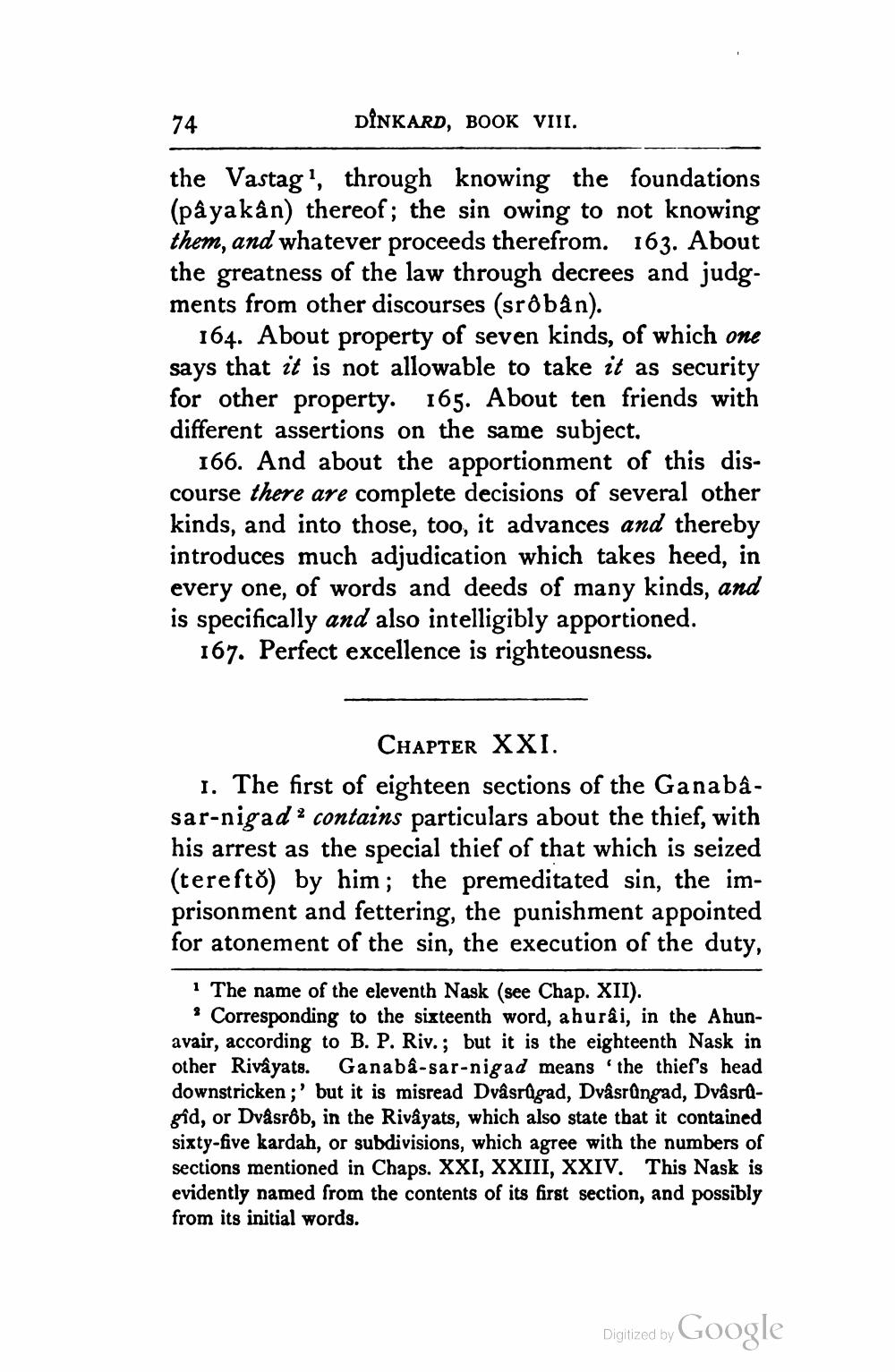________________
74
DINKARD, BOOK VIII.
the Vastag', through knowing the foundations (pâyakân) thereof; the sin owing to not knowing them, and whatever proceeds therefrom. 163. About the greatness of the law through decrees and judgments from other discourses (srôbân).
164. About property of seven kinds, of which one says that it is not allowable to take it as security for other property. 165. About ten friends with different assertions on the same subject.
166. And about the apportionment of this discourse there are complete decisions of several other kinds, and into those, too, it advances and thereby introduces much adjudication which takes heed, in every one, of words and deeds of many kinds, and is specifically and also intelligibly apportioned. 167. Perfect excellence is righteousness.
CHAPTER XXI.
1. The first of eighteen sections of the Ganabâsar-nigad contains particulars about the thief, with his arrest as the special thief of that which is seized (terefto) by him; the premeditated sin, the imprisonment and fettering, the punishment appointed for atonement of the sin, the execution of the duty,
1 The name of the eleventh Nask (see Chap. XII).
• Corresponding to the sixteenth word, ahurâi, in the Ahunavair, according to B. P. Riv.; but it is the eighteenth Nask in other Rivâyats. Ganabâ-sar-nigad means 'the thief's head downstricken;' but it is misread Dvâsrûgad, Dvâsrûngad, Dvâsrûgîd, or Dvâsrôb, in the Rivâyats, which also state that it contained sixty-five kardah, or subdivisions, which agree with the numbers of sections mentioned in Chaps. XXI, XXIII, XXIV. This Nask is evidently named from the contents of its first section, and possibly from its initial words.
Digitized by
Google




